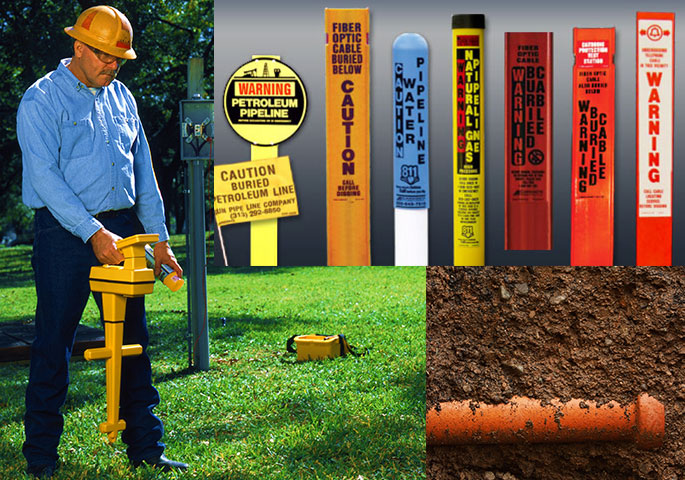June 2016, Vol. 71 No. 6
Features
TTC Plans Special Utility Investigations School

The Trenchless Technology Center (TTC) at Louisiana Tech University is launching another specialty school this summer – the TTC Utility Investigations School (UIS). TTC teamed with the American Society of Civil Engineer’s Utility Engineering and Surveying Institute (UESI) to provide an intensive five-day course which will give attendees the knowledge and tools to provide competent utility investigations in accordance with accepted national standards.
This first of its kind, this course will cover all in the context of the American Society of Civil Engineering’s (ASCE) 38 standard, utility system configurations, geophysics for finding utilities, proper records research, achieving utility quality levels, project documentation and more.
There has been little opportunity for instruction at the university level for practicing professionals and students in utility risk management for existing project development. Most post-graduate instruction to-date has been self-directed. Generally, most knowledge and information has come from on-the-job training, conferences and introductory webinars, or one-day overview classes by the ASCE.
Jim Anspach, a founding governor of ASCE’s UESI and chair of ASCE-38, has a special role in the development of this school. Anspach is a TTC advisor for the school and has been instrumental in developing the curriculum and identifying the best instructors.
“ASCE has recognized that Utility Engineering is a missing task discipline from our educational curriculum. One important aspect of that discipline, Utility Risk Management for Projects, is embodied in part through the use and proper application of the ASCE 38 Standard,” he observed.
“Yet all too often, there is no avenue to learn the principles that govern the use of this standard. I am delighted that TTC and ASCE have begun this series of educational opportunities for those professionals and others under their direct responsible charge.”
At the end of this course, students will receive five continuing education units (CEUs) and a Certificate of Completion.
More to come
This is the first of several similar planned courses in other aspects of utility risk management such as utility coordination, utility relocation design, utility asset management and more. The ultimate goal is to provide a path towards practicing in the field of utility engineering, with all its myriad individual components. As the nation’s existing underground infrastructure continues to age, becoming more congested and dangerous to the public at large, utility engineering as an option of study and practice will continue to grow in importance.
Faculty for this school will consist of recognized experts in the field of subsurface utility engineering, applied geophysics and utility system design and operation. National Academy of Science Investigators will be on hand to discuss new tools and processes developed under several different initiatives. Many types of geophysical instrumentation will be available from manufacturers.
Instruction will be a mix of lecture and hands-on field work, followed by testing each day.
The locations of existing underground utilities are uncertain once they are buried and hidden from view. This uncertainty presents risk during planning, design, construction and operations/maintenance functions. These risks are significant. The assumption that utility owner records are complete, accurate and available for the use of design engineers has been proven false time and time again. This is not the fault of the utility owners. They had no reason, incentive or directive to create engineering quality records of their facilities tied to recoverable survey control.
Tools, responsibilities
Tools used to infer the existence and position of hidden underground utilities are varied, extensive and require professional judgment. The concepts are similar to those in the medical profession while imaging a patient’s body. New technologies also exist in the imaging of utilities which will be covered in this school.
A professional’s function is to make decisions taking into account uncertainty and risk. Underground utilities fall into this category. ASCE Engineers produces a national standard (its principles are now incorporated throughout the world) that directs the utility investigation professional how to collect, grade the uncertainty, and communicate that uncertainty. Studies by varied entities overwhelmingly show a high return on investment for competent utility investigations concluded at the right time during a project’s development.
This school is designed for engineers and surveyors providing deliverables including results and depictions of utility investigations, employees of utility companies, state department of transportation and local highway agencies, regulatory agencies, local governments and more.
Registration
To learn more and register online, please visit the school web page ttcspecialtyschools.com/uis
or contact Jadranka Simicevic, TTC UIS director, 318-257-2744, jadranka@latech.edu.




Comments